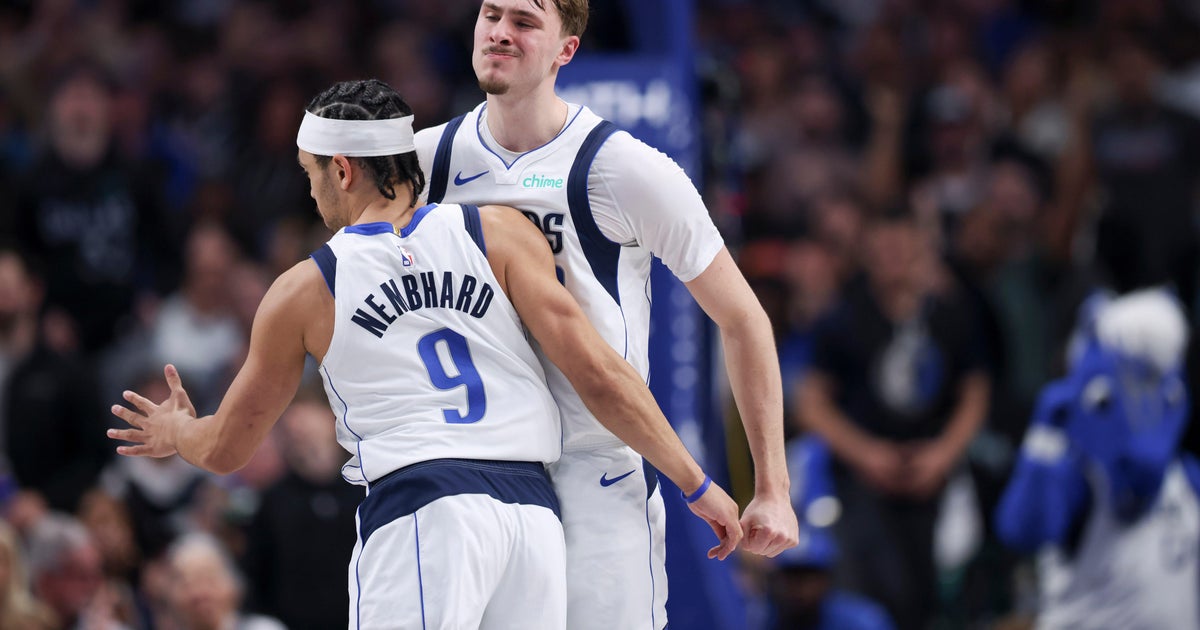Boxing, MMA Meet To Support Head Injury Research
WASHINGTON (AP) - Bringing together the rival bodies of boxing and mixed martial arts is no small feat. But there is one common cause on which they can agree - the need for brain trauma research.
On Tuesday, two former boxers, Sens. John McCain (R-Ariz.) and Harry Reid (D-Nev.), welcomed representatives of the world's two premiere boxing and four mixed martial arts organizations to announce support for a study to understand the effects of repeated blows to the head.
The combat sports have joined forces to commit $600,000 to the Cleveland Clinic's Lou Ruvo Center for Brain Health in Las Vegas.
"It's a rare occasion when Golden Boy Promotions and Top Rank Boxing are in the same room together," McCain said. "These athletes are here in support of their fellow athletes because they've seen the results. If we don't do this, I'm afraid that support for these incredible, entertaining sports will wane on the part of the American people."
A former chairman of the Nevada Gaming Commission, Reid has deep roots in boxing. He said he judged "hundreds" of matches, including one eye-opening bout late in the career of former great Sugar Ray Robinson, who accumulated 200 professional fights in 25 years.
"He fought too long," Reid said.
Seated behind Reid as he spoke was former middleweight champion Bernard Hopkins, still active at age 49, and most high-profile fighter involved in the study. He is one of nearly 400 active and retired fighters who have enrolled.
"You want to know the risks," Hopkins said. "God forbid if I was diagnosed with something 10-15 years ago, then I got a choice to make. Do I want to enjoy the rest of my life with my kids or do I want to continue to fight for myself and to walk around the rest of my life as a vegetable?"
This much has been determined: Professional fighters have a higher risk of developing long-term conditions such as Alzheimer's disease, Parkinson's disease, chronic traumatic encephalopathy (CTE), depression, and other neurological and neuropsychiatric problems.
But there currently is no way to determine if a fighter has sustained cumulative brain damage from head trauma. The Cleveland Clinic is working to identify risk factors.
"What we want to know is, what is the very first change that occurs," said Jeffrey Cummings, director of the Lou Ruvo Center. "Can you detect that in an athlete so you can tell that athlete that they are in the beginning of the process. Second, are there procedures, are there risk factors, are there vulnerabilities, so that we would know which athletes to monitor."
Former Bellator MMA lightweight champion Michael Chandler spoke eloquently, admitting that as a young fighter he didn't think about consequences, but he appreciated that others were looking out for his long-term well-being so that he could "play football in the front yard with my children."
(© Copyright 2014 The Associated Press. All Rights Reserved. This material may not be published, broadcast, rewritten or redistributed.)
Latest News:
Top Trending:
- Azle Residents Take Quake Concerns To Austin
- Cowboys' Romo Update: Complication In Back Surgery
- TCU Students Demand Higher Quality Toilet Paper
- Garland Police Arrest Teen Suspect For 7-11 Clerk Murder
- Owner Reunites With Dog 4 Months After 'Dognapping'
- PHOTOS: Your Pet Pictures







